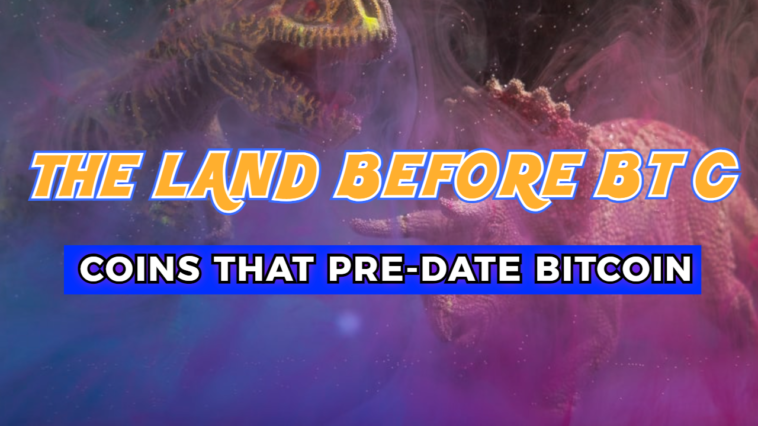On Halloween of October 31, 2008, while the children were out trick-or-treating, a whitepaper was published that would forever change the financial sector and perhaps the world. This paper was none other than the original Bitcoin whitepaper written by Satoshi Nakamoto.
Ironically, Satoshi himself is a bit of a ghost, his true identity shrouded in mystery and rumor – although there are some suspects. But did you know that Bitcoin wasn’t the first attempt to create a decentralized digital currency? A few brave pioneers paved the way to the digital revolution. We are ready to give credit where credit is due!
#1 The Pre-Cypherpunk Era(Pre-90’s)
Had to open up the history books for this one.
The earliest attempt to create a digital currency was actually recorded in the Netherlands. Gas stations were frequently hit by a string of night-time thefts. Some clever developers devised the idea to put money onto a digital smart card so that truckers would use those cards instead of cash.
Following that, centralized payment protocols like Visa and Mastercard emerged with the introduction of POS(Point-of-sale) systems. These payment protocols are still in use today, proving just how archaic the old payment technology actually was.
Following that, Paypal aimed to create one of the first digital currencies by allowing users to exchange assets like gold for credits. This was termed 'e-gold' but eventually ran into various scams, hacks and fraudulent spends and was ultimately shut down.
#2 B-Money(1998)
The idea of designing a digital currency was nothing new, but there was one challenge that needed to be overcome: The Double-spend problem*. In 1998, 10 years before the first cryptocurrency, computer engineer Wei Dai conceptualized the idea of a peer-to-peer currency that could be transferred peer-to-peer through the use of aliases.
*The double spend problem is when a user is able to send coins or pay for a transaction twice, by manipulating the ledger. This is solved in in modern cryptocurrencies with "consensus", basically 51% or more the mining hashing power agrees that once a transaction is added to the ledger, it is "law" and can't be used again. That's why it is so important to have plenty of diverse miners/stakers to ensure that 51% will never be achieved by one entity.
B-Money aimed to provide many of the services and features of today's crypto, describing it as "a scheme for a group of untraceable digital pseudonyms to pay each other with money and to enforce contracts amongst themselves without outside help."
The idea never really materialized beyond a published essay, but its important to note that this essay references concepts in use today such as the concept of proof-of-work, verification, and rewarding workers.
He was also the first to suggest the use of keys or ledgers for enforcement and authentication of contracts!
Fun fact: The smallest unit of ether is called a 'wei' as a means to honor Dai and his work.
#3 Bit Gold
Bit Gold was conceptualized by web developer Nick Szabo. It had a proof-of-work system very similar to the blockchains of today but ultimately failed to materialize. This was the first mention of a decentralized system away from governance and peaked the interest of cypherpunk and libertarian communities on the internet.
It's considered to be the closest precursor to Satoshi Nakamoto's Bitcoin. So close, in fact, that people have speculated that Szabo could in fact BE Satoshi Nakamoto!
In Bit Gold, users would have to solve a cryptographic puzzle using computing power, after which they are sent through a Byzantine Fault Tolerant(BFT) network and assigned to the public key of the problem solver.
In some ways this process of resembled a chain, linking the solution of one puzzle to the next.
Many people feel as if Bitcoin sort of appeared out of nowhere, but the truth is, Satoshi borrowed from lots of these earlier projects to create his masterpiece. Thankfully, for us these cryptocurrencies that came before Bitcoin served as sort of a "stress test" for what was to come.











Comments
Loading…